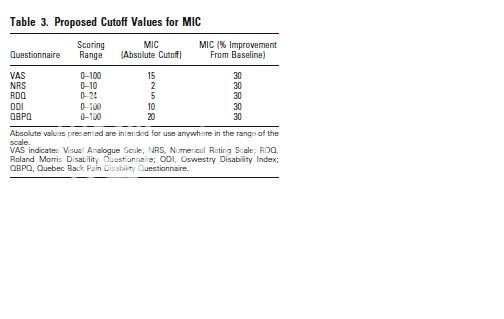...
One of the major problems of clinical trials in chronic diseases is that
outcomes are poorly chosen, usually to make the results look more
impressive, along with a high prevalence of potential biases [4]. In trials
of Cognitive Behavioural Therapy (CBT) or GET (Graded Exercise Therapy),
there is an over emphasis on short term improvements on self report
questionnaires and little emphasis on recovery as defined by activity levels
and employment status at long term follow-ups.
Patients in general are sceptical of improvements on self report
questionnaires when there are no improvements in activity levels. Patients
aren't interested in short term cognitive changes such as increases in self
efficacy, without a corresponding reduction in disability. They understand
that such questionnaires are subject to a variety of biases, including
response bias and social desirability effects.
Now a double blind RCT will effectively control for many of these biases,
but this is not possible in the case of CBT or GET. This is why clinically
significant outcomes must be chosen to have long term an objective
component, such as hours spent in employment and study, or actometer
measurements.
Unfortunately, when activity levels in CBT trials are measured, no
improvement is found [5]. Likewise, in an audit of the Belgian
Interdisciplinary rehabilitation programme for patients with CFS (n=593),
there was no improvement in activity levels at the conclusion of treatment
[6]. The therapy component systematically included CBT and GET, with
sessions spread over 6 to 12 months [6]. Employment status decreased at the
end of the therapy and the 6 month follow-up, however there was an increase
in study and volunteer work, so the overall level of physical capacity as
reported by the study did not change [6].
...
[4] Vollenweider, Boyd, Puhan, 2011. "High prevalence of potential biases
threatens the interpretation of trials in patients with chronic disease"
http://www.biomedcentral.com/1741-7015/9/73
[5] Wiborg et al. 2010 "How does cognitive behaviour therapy reduce fatigue
in patients with chronic fatigue syndrome? The role of physical activity."
http://www.ncbi.nlm.nih.gov/pubmed/20047707
[6] KCE Reports 88A Chronisch Vermoeidheidssyndroom: diagnose, behandeling
en zorgorganisatie, 2008. (Parts are in English)
http://www.kce.fgov.be/Download.aspx?ID=1222
Competing interests: Student potentially interested in doing CFS research.


